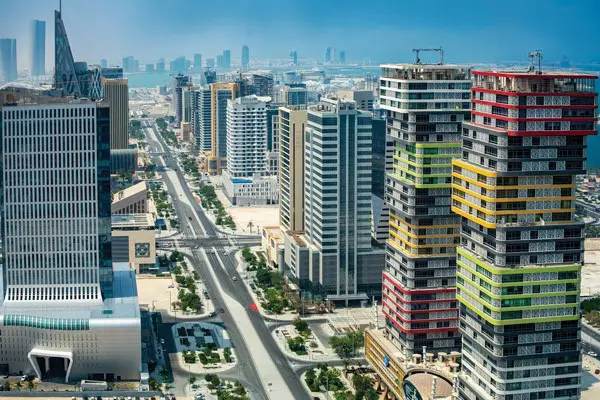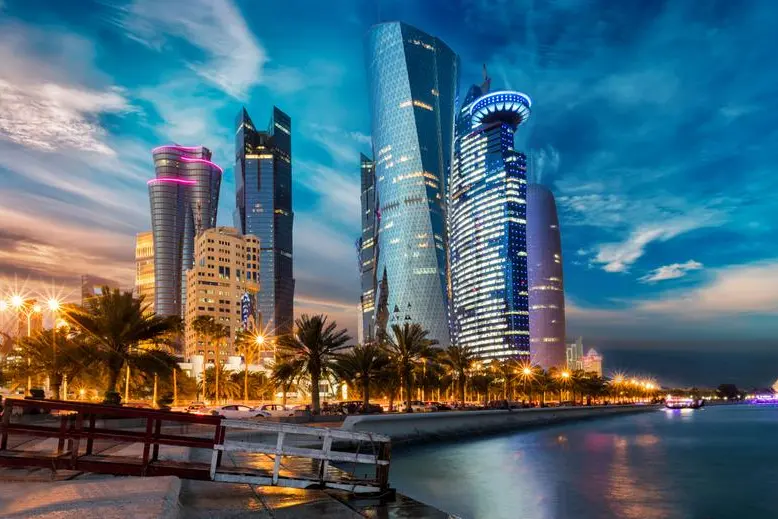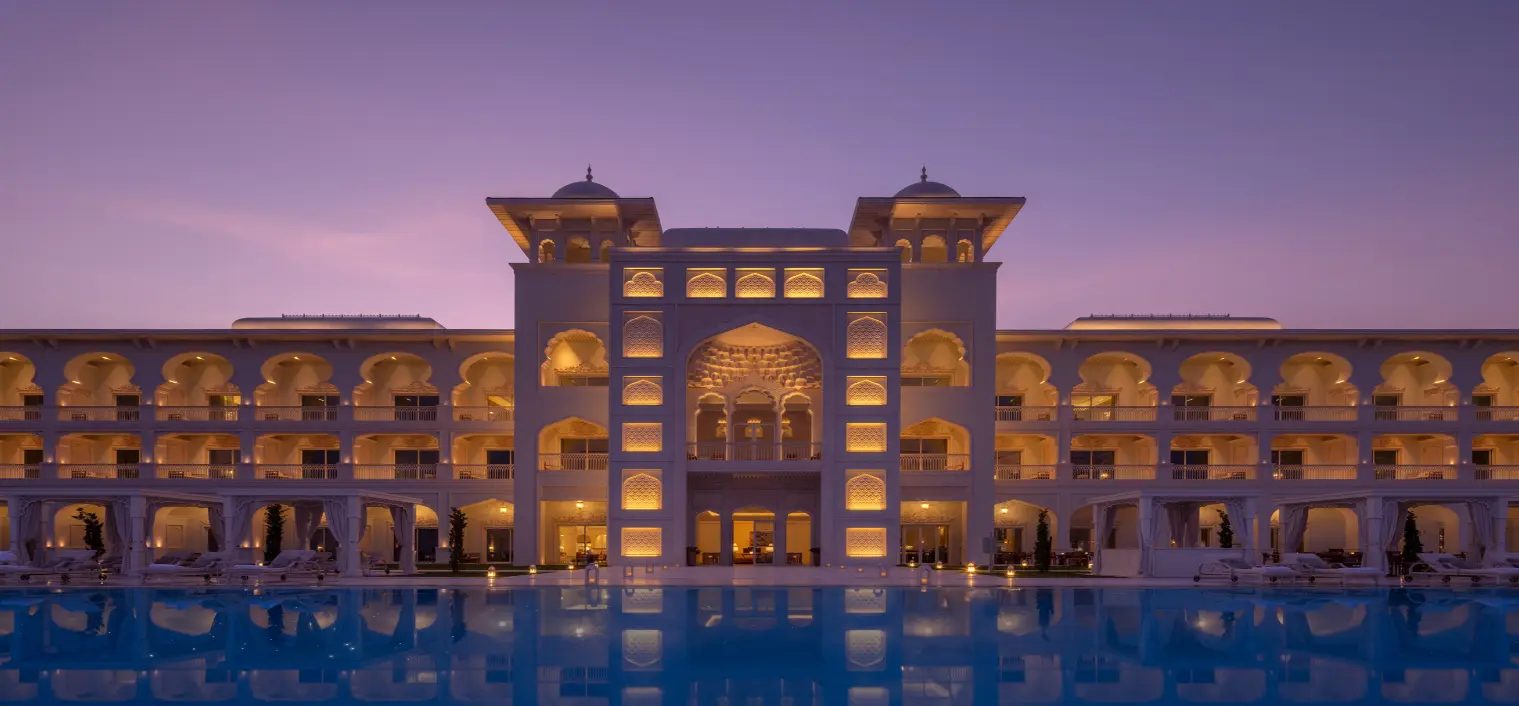Doha, the gleaming capital of Qatar, has always been known for its striking skyline, luxury, and futuristic architecture. But over the last few years, something even more trans formative has been taking place Doha is rapidly evolving into one of the smartest cities in the world. This transformation is not just about aesthetics or innovation for show; it’s about creating a better, more efficient, more sustainable life for its citizens.
From AI-driven infrastructure to IoT-powered public services, smart city technology is weaving itself into the very fabric of daily life in Doha. What once seemed like the future is now the present. Let’s explore how smart city technology is changing the face of Doha and what it means for residents, businesses, and the future of urban living.
What Is a Smart City and Why It Matters
A smart city uses advanced technology and data analytics to manage assets, resources, and services efficiently. It improves city operations, enhances the quality of life, and promotes sustainable development. Smart traffic management, energy-saving buildings, connected public transport, and AI-driven services are all part of this system.
Doha has embraced this concept not as a luxury, but as a necessity. With rapid urban growth and a desire to lead the region in innovation, Doha’s government is investing heavily in digital infrastructure and smart solutions to make city living seamless, sustainable, and secure.
Smart Mobility Transforming Transportation
One of the most noticeable transformations in Doha is the way people move around the city. Gone are the days of chaotic traffic and unclear public transport. Smart traffic signals, real-time public transport apps, and intelligent parking systems are making transportation more efficient and commuter-friendly.
Doha Metro, one of the most advanced transport systems in the region, operates with cutting-edge technologies, offering real-time updates, contactless payments, and AI-enabled crowd management. Smart bus shelters equipped with screens and solar panels provide route information and shelter from the heat. These developments make everyday commutes smoother, faster, and more reliable.
Intelligent Infrastructure for a Digital Future
Infrastructure is the backbone of any smart city, and Doha is setting benchmarks in this area. High-speed internet is accessible citywide, and 5G coverage is growing rapidly, making it easier for residents and businesses to stay connected.
Smart buildings with integrated sensors monitor energy use, lighting, temperature, and air quality to reduce environmental impact and lower costs. Government offices and commercial spaces are adopting automation for smoother operations. Even street lighting is getting smarter—LED lights with motion sensors save power and improve nighttime visibility.
Such smart infrastructure not only enhances efficiency but also reduces environmental strain, which is key in a city aiming for long-term sustainability.

Sustainable Living Through Smart Tech
Sustainability is at the core of Doha’s smart city mission. The integration of green technologies and eco-conscious systems ensures that the city’s development doesn’t come at the cost of its environment.
Smart water meters, waste management systems, and renewable energy projects are helping Doha take control of its resource consumption. Smart irrigation systems in parks adjust watering based on weather forecasts, minimising water waste. Waste bins are fitted with sensors that alert authorities when they’re full, improving collection efficiency and reducing overflow issues.
The city is also investing in solar energy and green building certifications, pushing for a future where tech and nature go hand-in-hand.
Public Services Powered by AI and IoT
One of the biggest advantages of smart technology is its impact on public services. In Doha, artificial intelligence (AI) and the Internet of Things (IoT) are being used to create smarter, faster, and more citizen-centrist services.
E-governance platforms allow residents to access government services from their phones—from renewing documents to paying fines. AI chat bots answer queries 24/7. Smart health apps monitor well-being and connect patients with doctors remotely. Emergency services are integrated with AI to respond faster and more accurately.
All of this leads to reduced wait times, improved satisfaction, and better overall management of public resources.
Enhancing Security and Public Safety
Safety is non-negotiable in any smart city, and Doha is taking this seriously. Surveillance systems powered by AI facial recognition help monitor public areas without violating privacy. Smart street lighting improves safety at night, and sensors in critical areas detect unusual activities or accidents in real time.
In emergency situations, coordinated digital systems provide instant updates to first res ponders, ensuring faster help when it’s needed most. The use of drones in surveillance and rescue missions is also gaining momentum in Doha’s security landscape.
These smart safety measures give residents peace of mind and strengthen the city’s resilience against threats, both natural and man-made.
Education and Smart Learning for the Future
Doha is not just creating a smart city it’s preparing a smart generation. Educational institutions across the city are adopting smart classrooms, AI tutors, and virtual labs to make learning more interactive and personalised.
Students can access lessons online, teachers can use data to track progress, and parents stay informed with real-time updates. This level of connectivity is ensuring that education in Doha is not only accessible but also tailored to individual learning needs.
In a fast-changing world, this focus on future-ready education will ensure Doha stays competitive and innovative.

Boosting Economy Through Digital Innovation
Smart city technology is not just benefiting residents it’s boosting Doha’s economy too. By creating a digitally connected environment, the city is attracting startups, entrepreneurs, and global tech firms. Smart zones and innovation hubs provide resources and funding to businesses driving the next wave of innovation.
E-commerce is thriving thanks to improved digital infrastructure, and fin tech is gaining momentum with AI-based financial services. With a focus on innovation, Doha is becoming a magnet for investors looking to be part of the future.
These economic boosts create jobs, fuel development, and add to the city’s global reputation as a tech-forward hub.
Smart Tourism Elevating Visitor Experience
Doha is also using technology to redefine tourism. Smart kiosks at tourist sites provide real-time information in multiple languages. Augmented reality (AR) apps let visitors explore cultural sites with immersive experiences. Digital guides and AI concierges in hotels ensure that tourists feel welcomed and informed.
Smart transportation options and integrated payment systems allow tourists to explore the city with ease. Whether it’s booking a museum ticket or finding the best local food spot, smart tourism is making visits more memorable.
This tech-powered hospitality is positioning Doha as a top destination for global travelers looking for a modern yet culturally rich experience.
Real-Time Data and Predictive City Management
Behind all the innovation lies the most powerful tool data. Doha is becoming a data-driven city, where information collected from various sources is used to make real-time decisions and long-term plans.
Predictive analytics help anticipate traffic jams, water shortages, or power usage spikes. City planners use data to design better spaces, avoid overcrowding, and optimise public service delivery. This data-centrist approach ensures that Doha doesn’t just react to challenges it stays one step ahead.
This level of planning leads to a smoother, more efficient life for everyone, and a city that adapts proactively to its needs.
Citizen Engagement in the Smart Era
Technology in Doha isn’t just top-down it’s also designed to involve the community. Digital feedback tools let residents report issues or suggest improvements directly to authorities. Social media is used not just for updates, but for real dialogue between citizens and officials.
Mobile apps allow users to track city projects, report potholes, or suggest new ideas. This creates a sense of ownership and trust in the system. Smart cities work best when their citizens are also smartly connected, and Doha is embracing this collaborative future.
By making technology user-friendly and inclusive, Doha is ensuring that every resident is a co-creator in this transformation.
The Road Ahead: Vision for 2030 and Beyond
Doha’s smart city journey is far from over. With Qatar’s National Vision 2030 guiding the way, the focus remains on human development, environmental sustainability, and technological leadership.
Future projects include AI-powered city planning, autonomous vehicles, smart waste-to-energy plants, and even more sustainable architecture. The ambition is clear make Doha a global model for smart urban living.
This journey is not just about gadgets and apps it’s about re imagining how a city can work for its people. Doha is proving that with vision, commitment, and technology, any city can transform into a better version of itself.
Conclusion
Doha’s leap into smart city territory is not just impressive it’s inspiring. From transport to education, from safety to sustainability, every part of life is being enhanced by intelligent systems and thoughtful innovation.
This transformation is setting Doha apart on the global stage as a city of the future. It’s not just about being modern it’s about being meaningful. And as the city continues to evolve, the people of Doha stand at the centre of this smart, sustainable, and stunning revolution.
In every smart sensor, every AI-powered app, and every connected space, one thing is clear—Doha’s future is not just bright, it’s brilliantly smart.
Do follow Gulf Magazine on Instagram
Also Read – How Technology Drives Qatar’s Vision 2030 Goals



